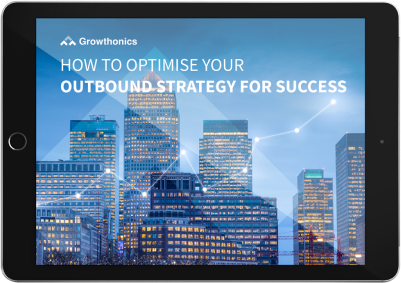B2B Marketing Guide
John O'Shea
B2B is an acronym that is quite common in marketing circles. However, many marketers don’t quite understand the value of B2B marketing in helping their businesses and brands to connect with their target audience, deliver compelling experiences, and drive revenue.
In this B2B marketing guide, we cover everything you need to know about B2B Marketing by exploring what it means, how it’s different from B2C marketing, benefits, strategies for success and examples of B2B marketing.
Let’s start with the basics;
What is B2B Marketing?
At the very basic, B2B is the acronym for business to business. By definition, it’s the marketing strategy that a business uses to not only target but also to sell directly to another business. This means one company or business targets another company or business as their prime customer, rather than selling to individual customers.
Some B2B companies may also offer services or products that work for both B2C and B2B models. However, they opt to pursue the B2B path for their business operations to simplify logistics and capitalise on revenue.
To put this into perspective, you need to understand how B2B marketing compares to B2C marketing next.

What is the difference between B2B and B2C marketing?
There are several differences between business to business and business to customer marketing. However, the main difference is their target audience. Business to customer marketing mainly targets individuals buying services or products for their own consumption.
B2C marketing takes the everyday interests, needs and challenges of consumers into account. Conversely, B2B targets groups or individuals who want to resolve a pain point for their business/company.
Another notable difference between B2B and B2C is the sales funnel. As any good SDR will tell you, the B2B sales funnel is much longer, as there are more people involved in the decision making process than there are in the B2C sales funnel.
Here is a comparison of the 5 main differences:
B2B Vs. B2C Marketing
• Many decision makers involved
• A small pool customers
• Return on Investment (ROI) is crucial
• Much time spent on nurturing relationships
• Purchase made rationally and collectively
• Products are updated constantly
Purchase decision is made by an individual
A large pool of customers
ROI isn’t a major factor
More focus on brand awareness
Buyers make purchases emotionally
Minimal changes to the product
Keeping all these differences in mind, it’s clear that targeting, tone and style of B2B and B2C marketing are different. The demand generation strategies that work for B2C marketing will not work for B2B marketing and vice versa.
Then, why should businesses invest in B2B marketing?
Benefits of B2B marketing
If you’re at the start of the B2B marketing journey, it’s possible you’re wondering if it’s worth it. Well, I guarantee you that with a detailed and productive B2B marketing strategy, it’s worth it in the long run. However, you must be ready to put in the commitment and effort.
The advantages of having a B2B marketing strategy are:
Lead generation
One major advantage of B2B marketing is lead generation. A comprehensive B2B strategy will place you before prospective buyers where word-of-mouth tactics can’t go.
Build awareness
Potential clients and businesses must know who you are, how they can work with you, and what you can deliver.
Drive traffic
When you strategically distribute marketing content through your website and other influential third-party platforms, you can be sure to drive targeted traffic for your business.
Reduce customer churn
Chasing new business and leads all the time can be counterproductive. However, when you have an effective B2B strategy in place, you can establish yourself as an expert in your field. This helps to establish long-lasting relationships with your customers, thus minimising customer churn.
Improve your rankings
Effective B2B marketing strategies will put your business at the top of search engine rankings, meaning more visibility.
Great customer insight
A B2B marketing strategy sheds light on how your business interacts with other businesses. Take time to understand the most read content and how businesses engage with your strategies.
Best Practices for B2B Marketing
There are many approaches to B2B marketing, so you need to know the best practices to be sure your strategy is a great fit for your business. Some of the best practices include:
Identify target customers
Your product is certainly a great fit for some buyers and not others. Therefore, ensure you know your ideal buyer. This will help you channel your marketing efforts on them.
To reach your buyers effectively, leverage multiple marketing channels so you can reach prospects whenever they carry out a search.
Qualify leads
Not all leads are good. Some leads don’t have the buying authority while others are in the initial stages of searching for solutions, hence not ready to purchase.
Educate and nurture leads
Attract and qualify leads so they understand what it is about your product that makes it stand out and how you can solve their challenges.
Measure results
To ensure you achieve the best return on investment for your marketing efforts, collect crucial data that will help you assess the most effective marketing efforts.

B2B Marketing Strategies
Not all B2B marketing platforms and messages are the same.
This section goes over B2B marketing strategies you can apply to your business audience.
Well, many marketers think of outbound and inbound marketing strategies when you talk about business-to-business marketing strategies. If you’re in this category, it’ll surprise you to know that these are different things.
A B2B strategy is the guide that ensures you meet all objectives as it captures specific measures you put in place for an order. On the contrary, a tactic is a measure you must implement to achieve the objectives in the plan.
Your B2B marketing strategy specifies your marketing goals, ways of measuring the success of marketing campaigns, your target audience, and brand positioning.
The most common B2B marketing strategies are:
- • Campaign marketing – To educate prospects and generate interest in your product or service.
- • Content marketing – Leverage thought leadership, blogs, product tutorials and eBooks to build brand awareness and boost SEO for visibility on search engines.
- •Digital marketing – Helps in promoting your brands so that you can connect with prospects better.
- • Performance marketing – Lets you manage your advertising spend while generating leads through ads and building brand engagement.
• Product marketing – Generating awareness of B2B products or services while promoting it at scale.
Steps to Building your B2B Marketing Strategy
Here are 5 steps to building a B2B marketing strategy:
- 1. Market analysis
You need to know who your competitors are as this gives you insight into the market for your product or service and how well developed it is. Market analysis is critical if you must find your competitive edge. Existing customers and prospects must know what sets your product or service from others.
- 2. Assess your buyers
Buyer personas help you look at things from the customers’ viewpoint so you can communicate to them in a manner that applies to their needs. Segmentation lets you target value proposition to problems and issues of potential customers. You need to know the roles of decision makers, how much time they spend researching, and the volume of purchases.
- 3. Select marketing channels
You need to consider an omnichannel marketing approach. You don’t have to go for all channels rather, opt for those that are a good fit for your target audience. For instance, thought leadership as an inbound marketing effort will have an excellent impact where a billboard will not.
- 4. Plan your marketing tasks
With your preparation and research out of the way, you can plan marketing activities and tasks. You could consider creating a website, email marketing, case studies, white papers, video tutorials and social media campaigns, among others.
- 5. Measure results
You must stop to evaluate what works and what doesn’t. Have a detailed data collection plan so you can effectively analyse your marketing efforts.
B2B Marketing Examples
There are several ways to achieve your goals through B2B marketing. You can use these tactics to generate demand, generate leads or convert leads. For demand generation, the aim is highlighting the problem your target audience is experiencing and showing them a solution. For lead generation and conversion, you’re simply encouraging them to evaluate and purchase. Here are 8 examples for B2B marketing strategy:
- • Content marketing–Blog posts, white papers, though leadership to educate and generate interest.
- • Search engine optimization–Designing your website for increased visibility online.
- • Banner advertising targeting your ideal audience
- • Use of social media platforms to enhance customer relationships
- • Search engine advertising displaying ads to prospects whenever they search for the products and services you offer.
- • Retargeting to create an opportunity to put your business before users that are familiar with your brand.
- • Email marketing to maintain relationships with your existing contacts.
- • Leveraging lead nurturing and marketing automation software aimed at turning contacts to qualified leads by sending them relevant content throughout their buyer’s journey.
- • Continued testing and measuring your strategies to ensure they’re relevant and up to date.
- • Account based marketing for high value accounts.
B2B Marketing Trends to Watch
B2B marketing trends are constantly evolving. The coronavirus pandemic saw the emergence of new trends in digital marketing as thought leaders were looking for ways to adapt to the changing business environment.
Some of the notable trends include virtual events, hybrid working models and the rise in video marketing. These trends require marketers to be more agile and responsive to the changing industry as tracking B2B data becomes increasingly important.
Learn more about our B2B Marketing services by booking a call with Growthonics today.
Subscribe to our mailing list
Find out how we can help
Our Offices
China Works,
Black Prince Road, Vauxhall,
London, SE1 7SJ
GROWTHONICS © 2022 ALL RIGHTS RESERVED






